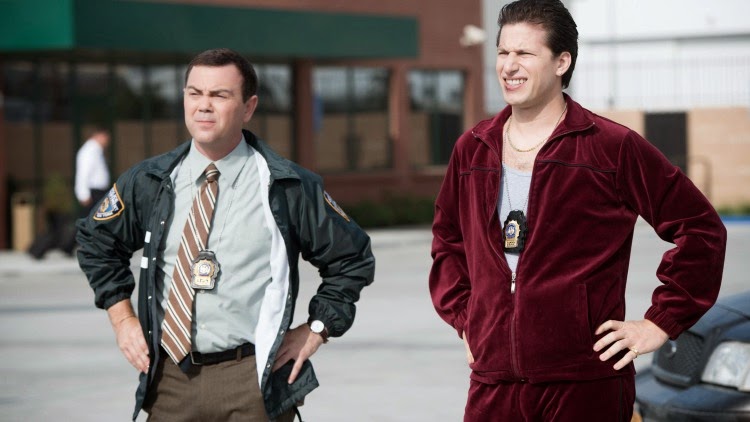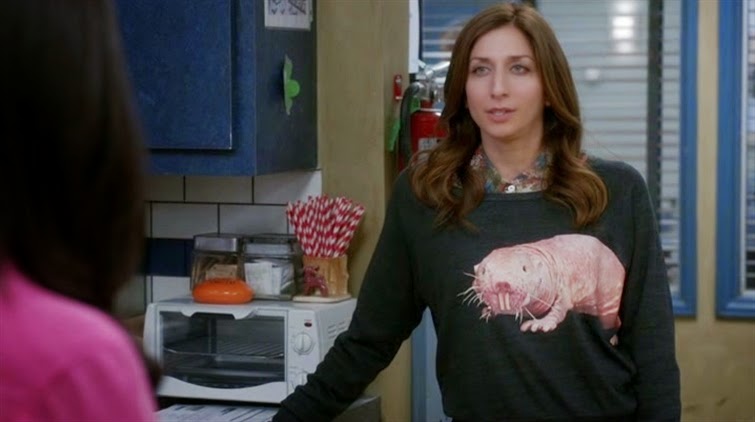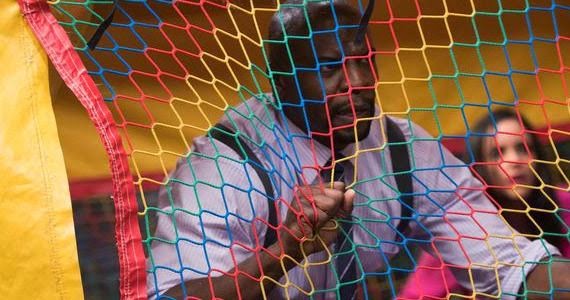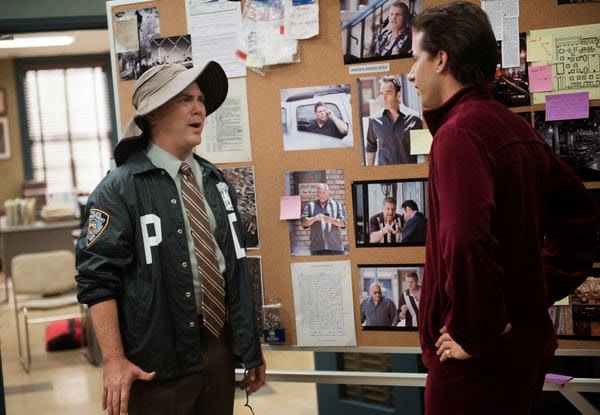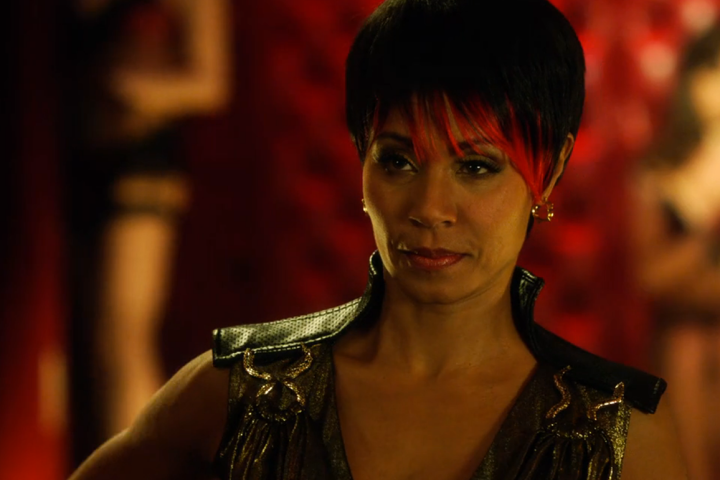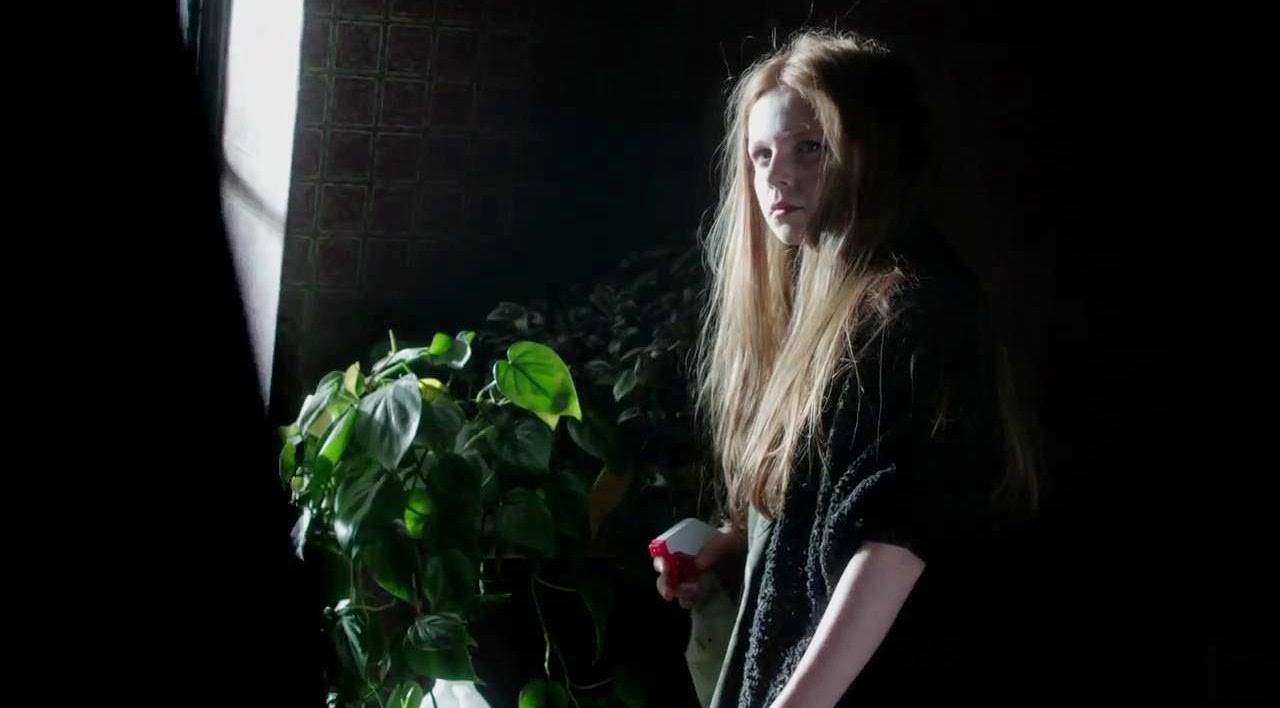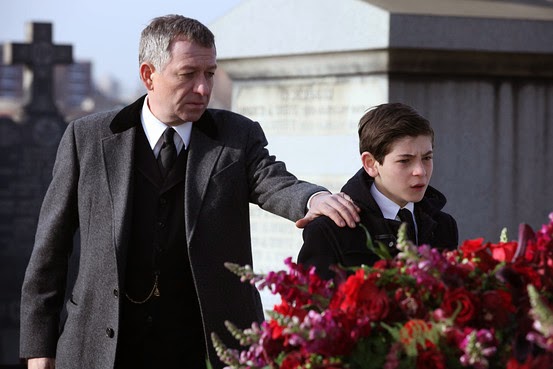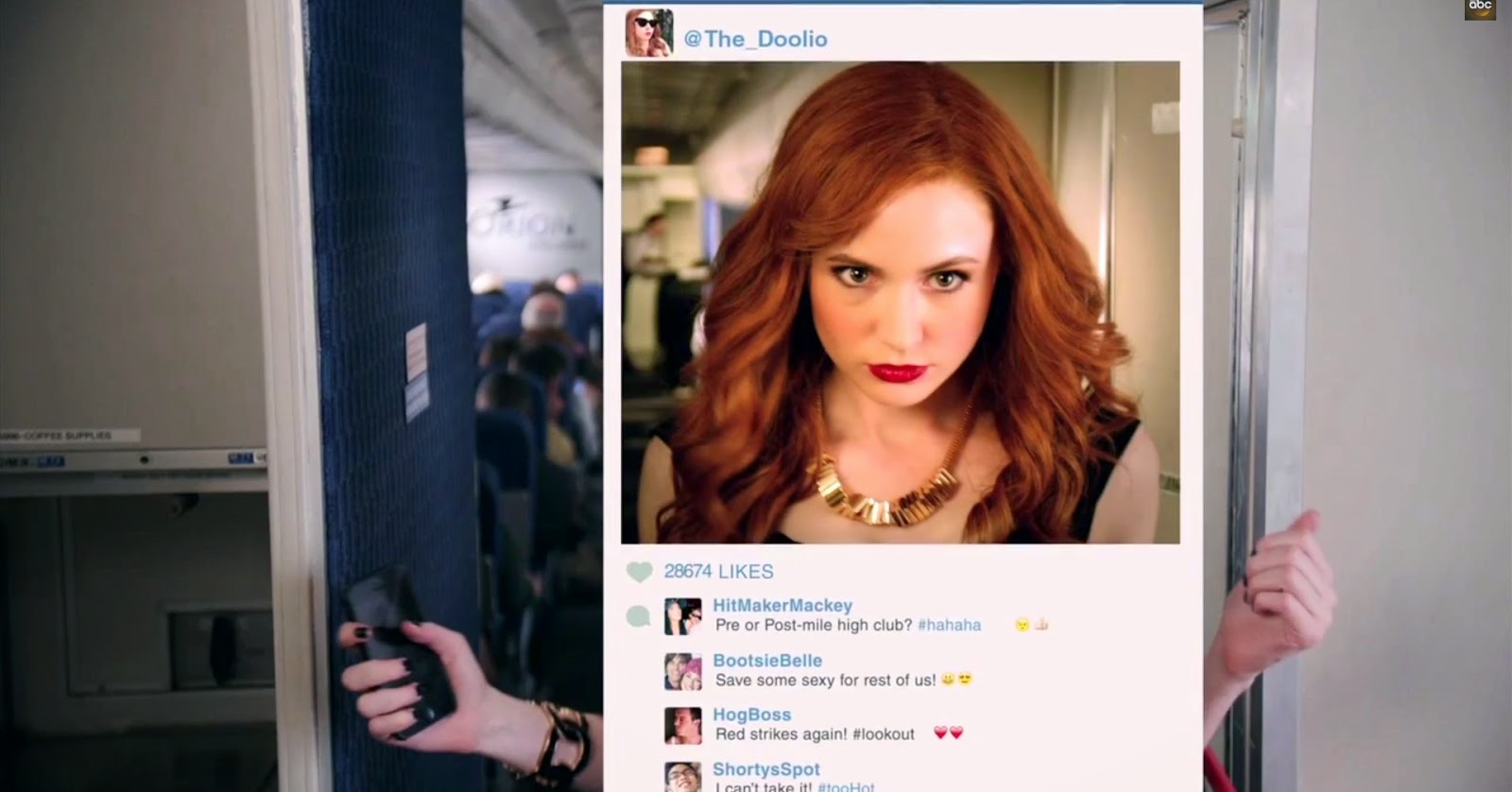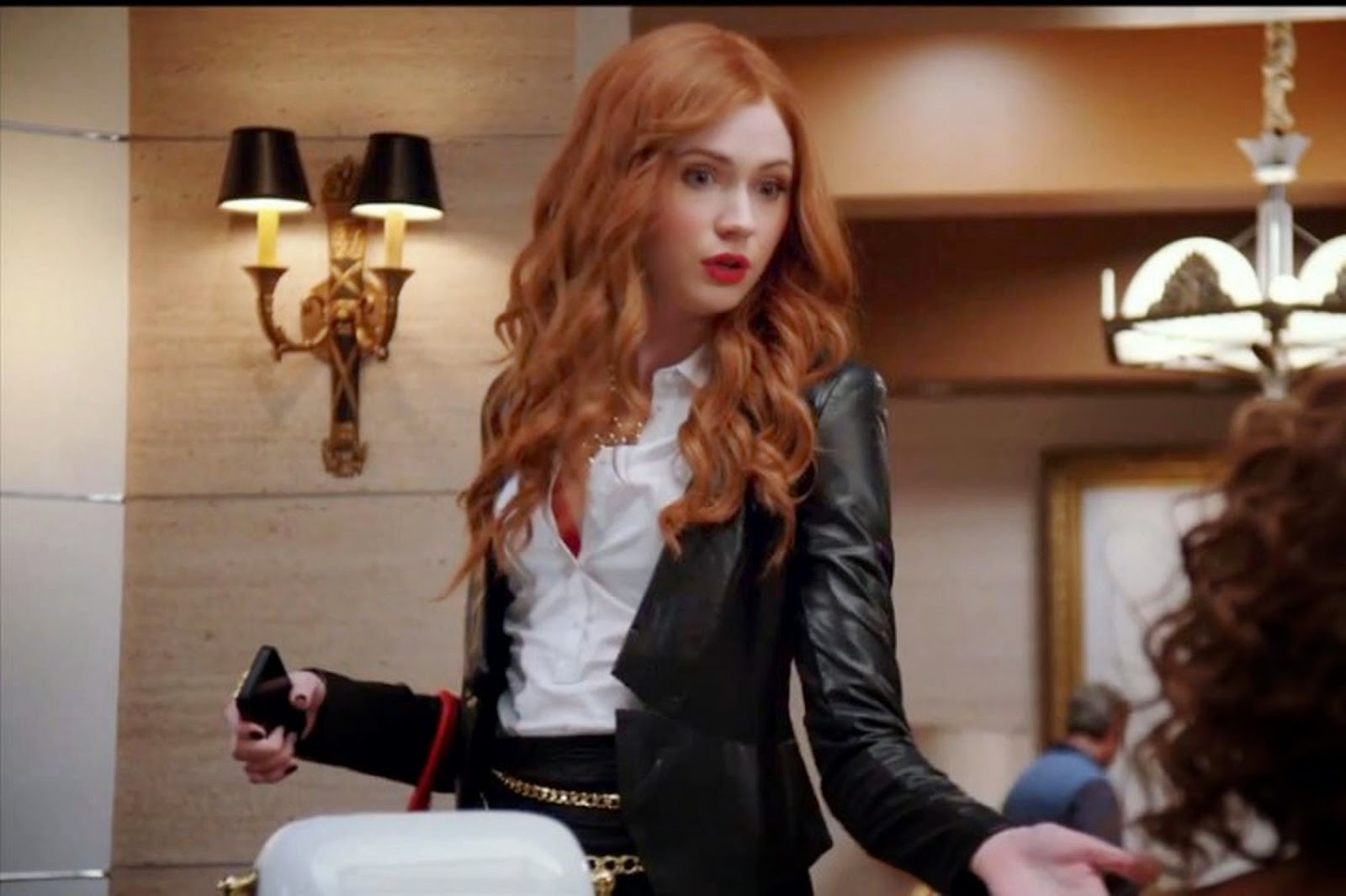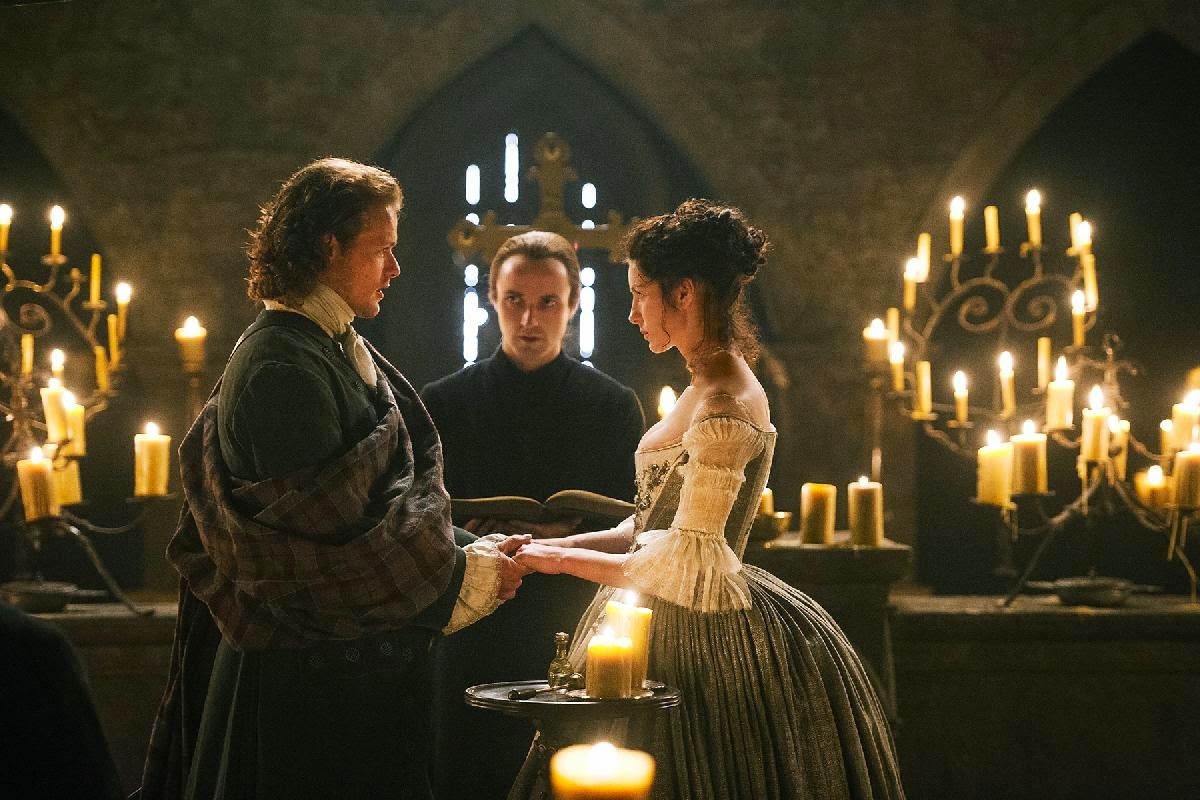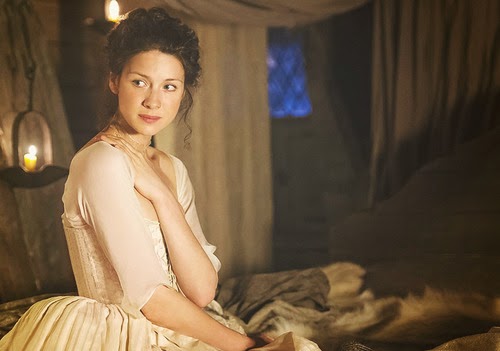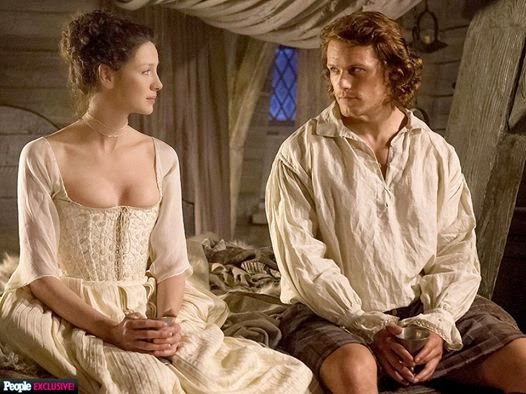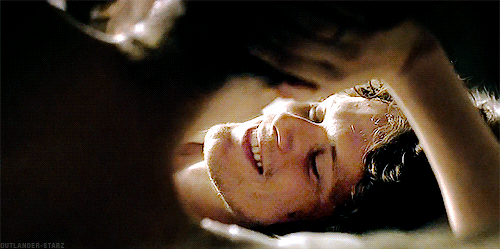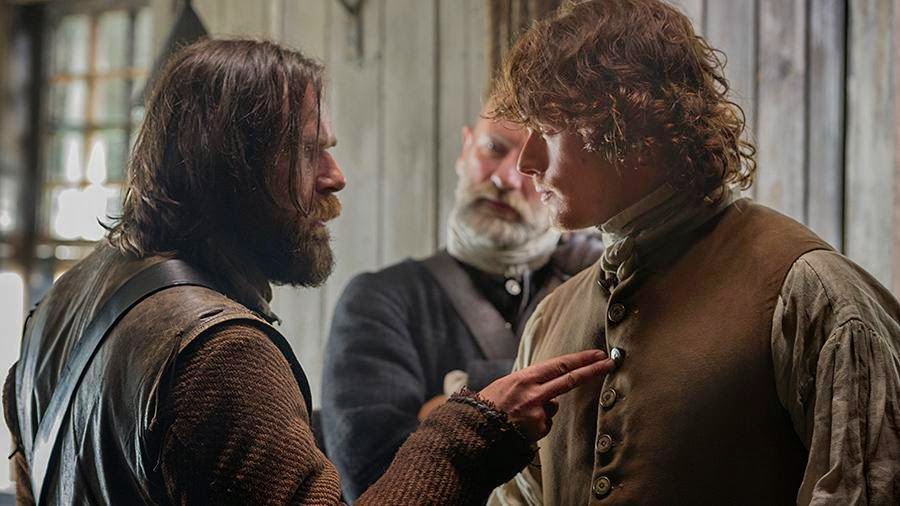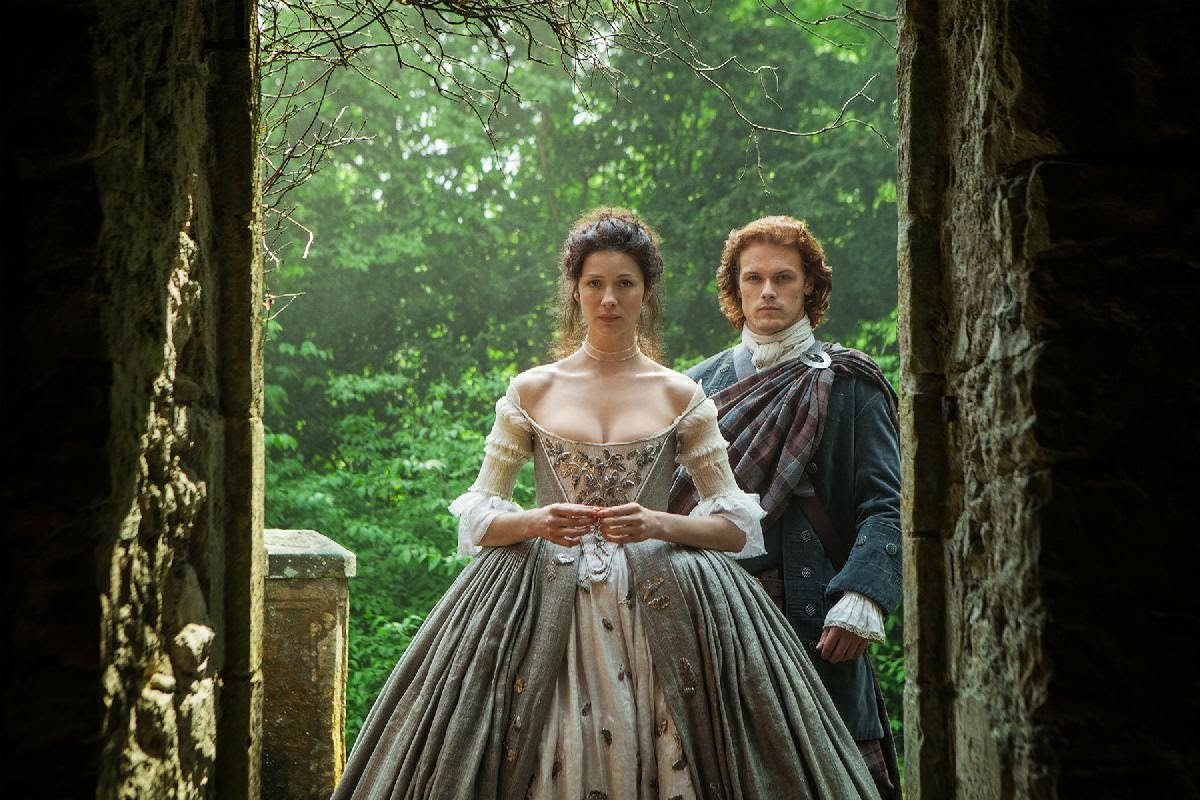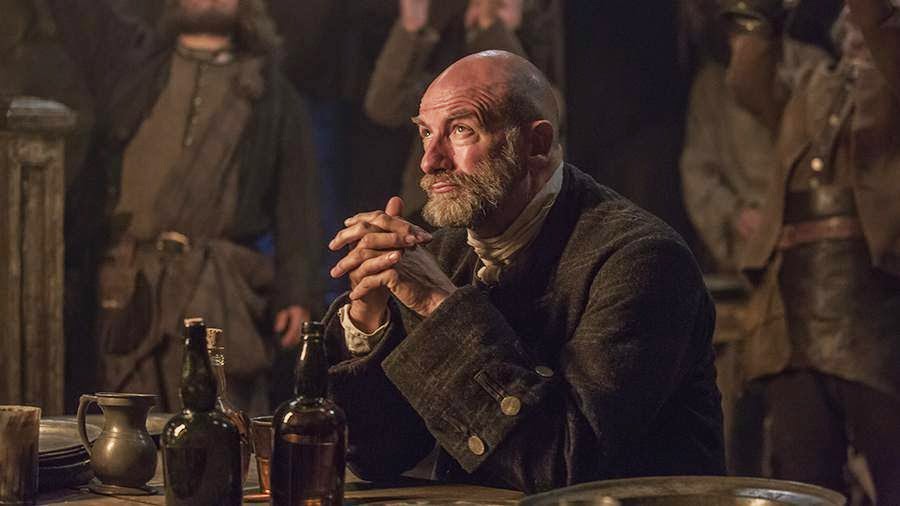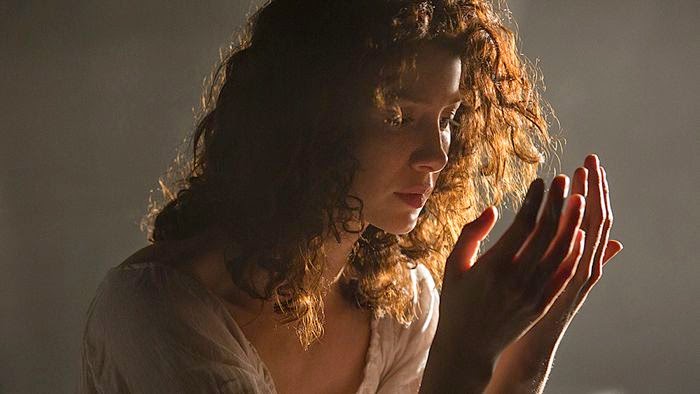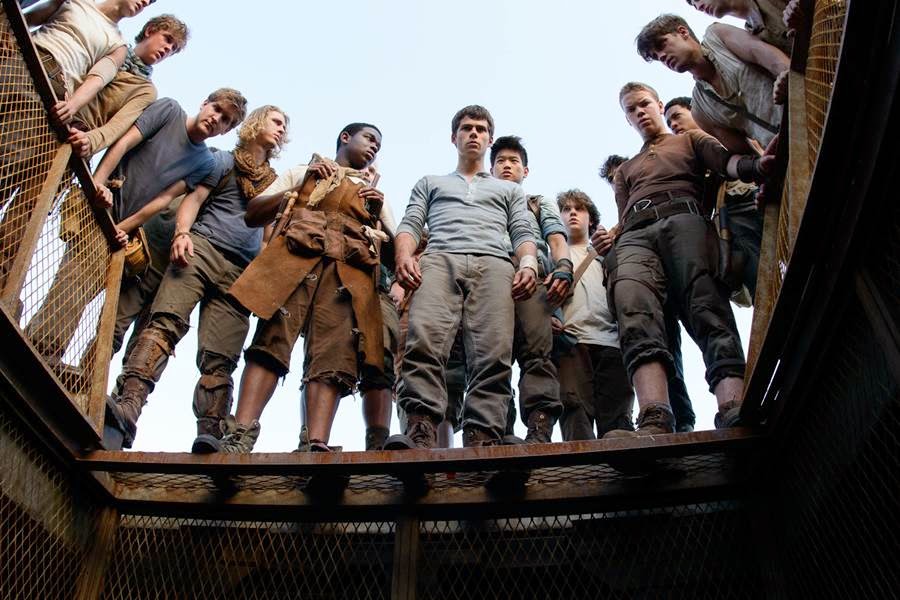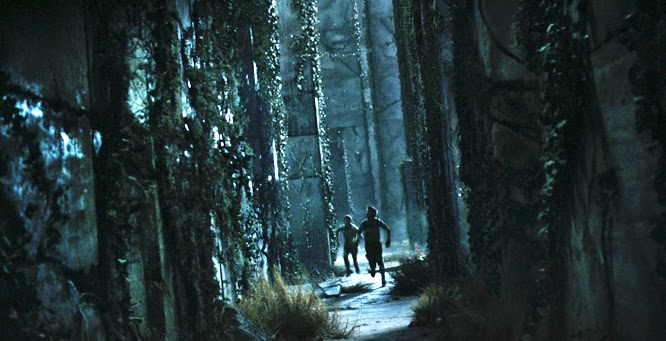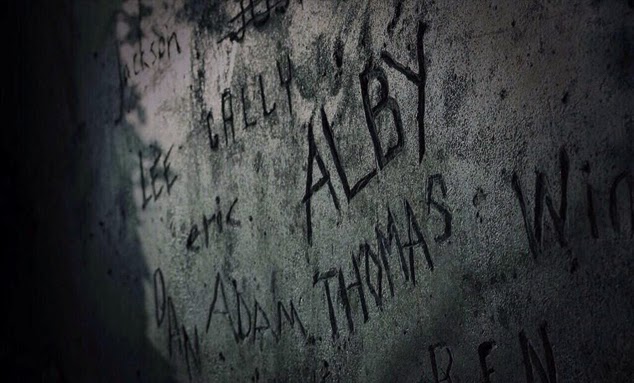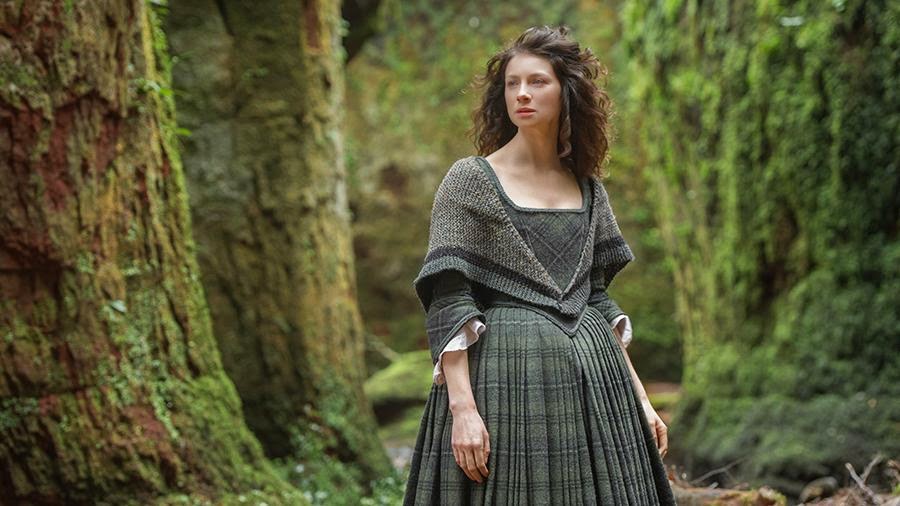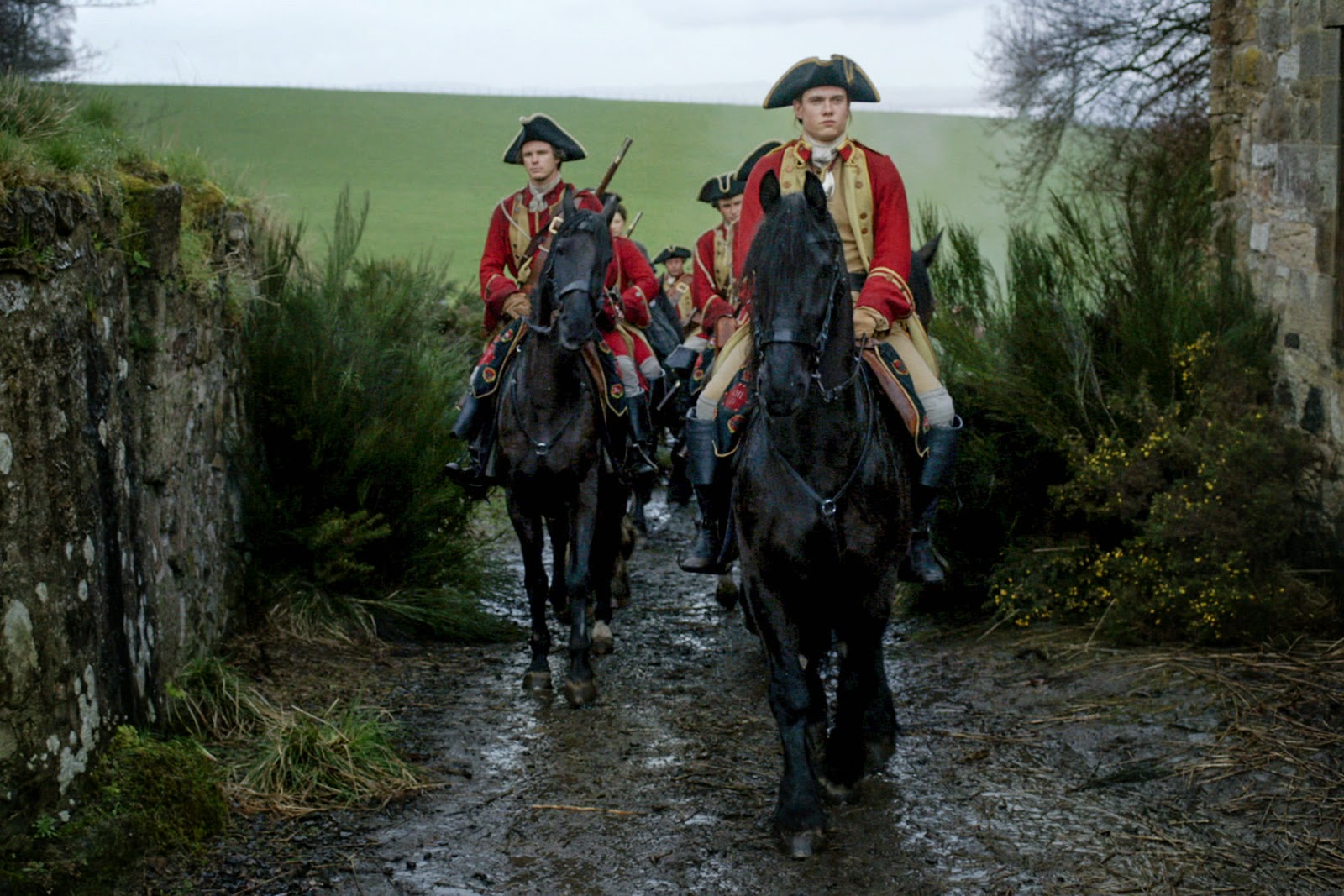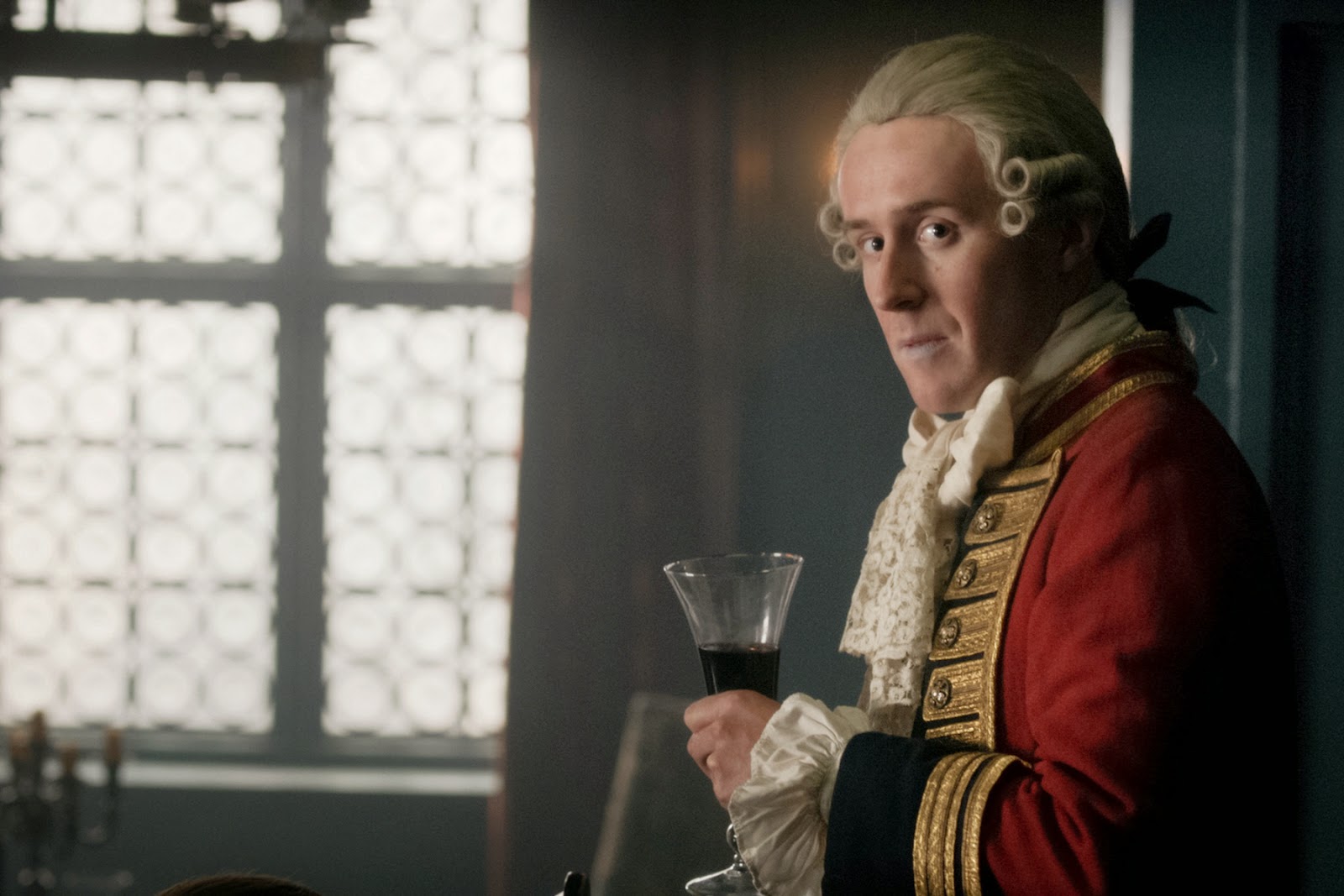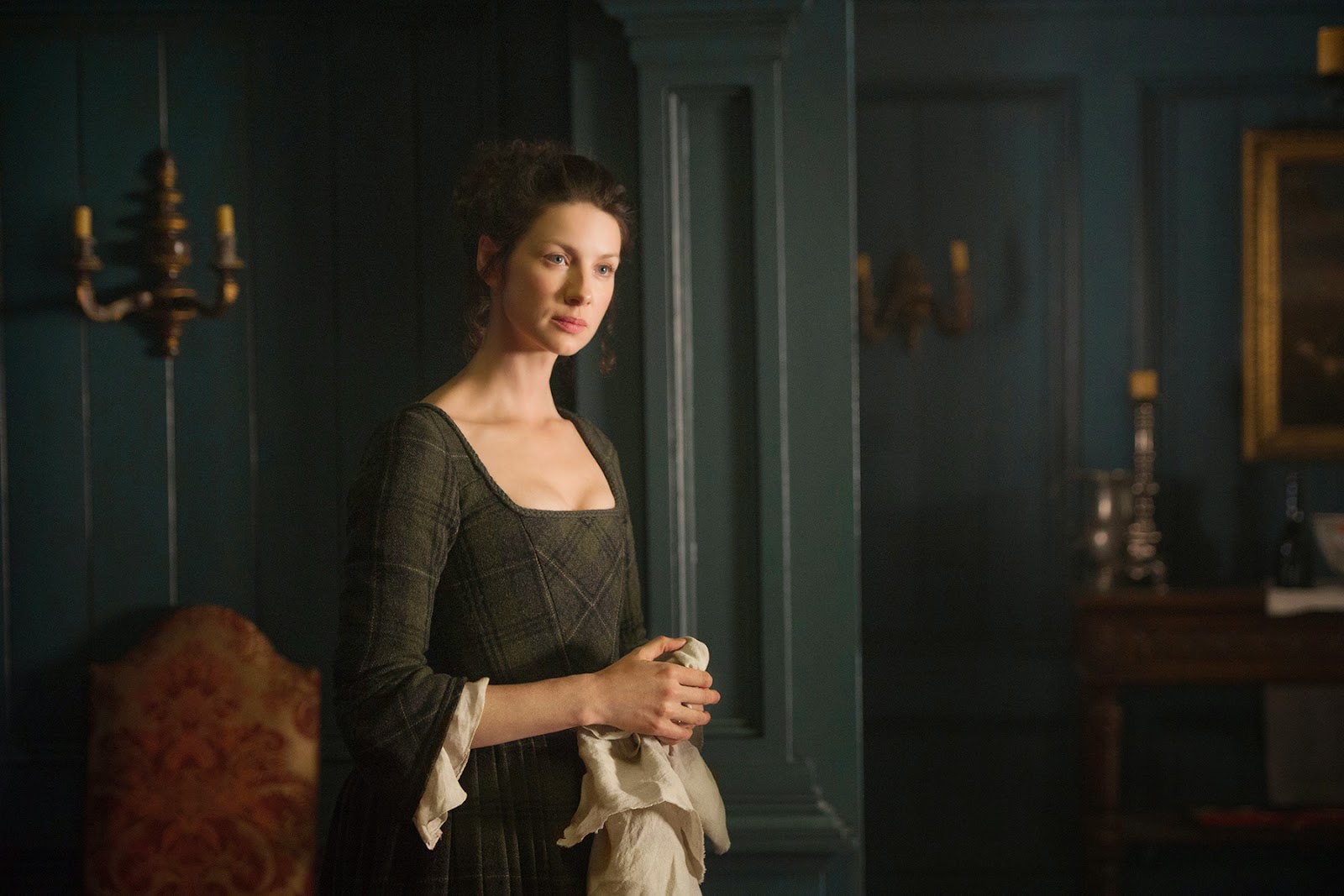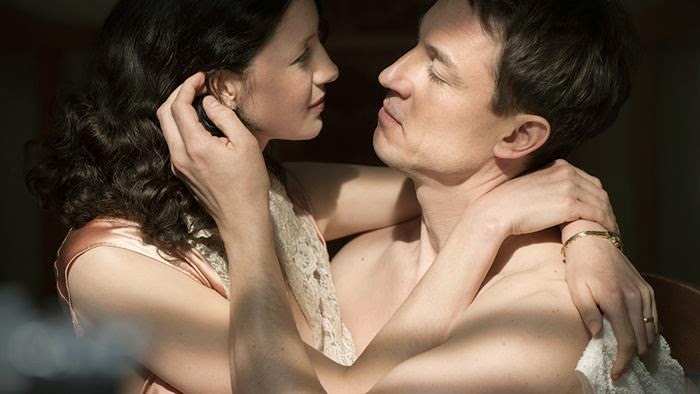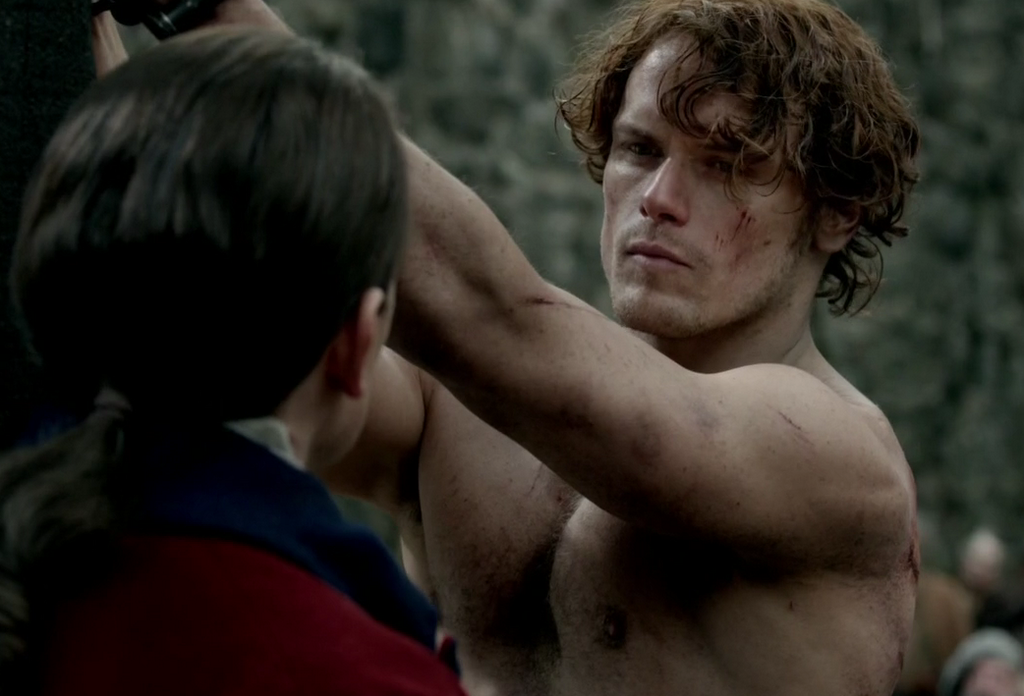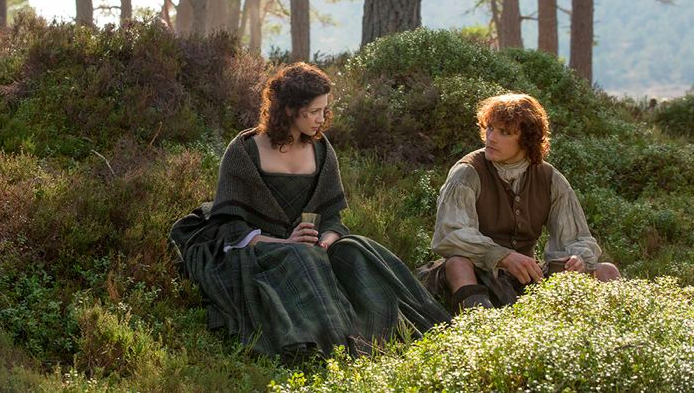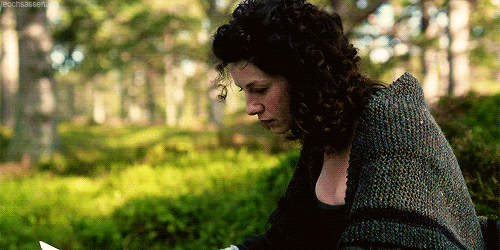If last week’s episode bothered me with how dull it managed to make the actually pretty interesting source material (Claire’s journey through countryside in the company of a bunch of MacKenzie fighting men), then this week absolutely blew me out of the water with how much story and tension and excitement the show could wring out of an episode that is pretty much Claire sitting at a table for an hour.
Seriously, that’s the majority of what actually happens in this episode. But, obviously, it’s not the sum total of what happens. If you get my meaning. Which was worded badly.
The episode picks up, as it should, with last week’s cliffhanger. As Dougal and Claire stand by a stream and argue about politics, a gaggle of redcoats ride up, and Foster, the sympathetic redcoat who is worried about Claire, steps forward to ask, once more, if she’s all right. Claire’s long pause signaled the end of the last episode, and now we come back in to hear her answer. Which is, as it turns out, that yes. She’s fine. No real problems here.
And, if you think about it, there really aren’t anymore. While Claire is convinced that the MacKenzies are going to get themselves killed in this Jacobite rebellion, she’s reasonably sympathetic to their cause and reasons. Sure, she’s still attempting to get back to the stones, but at this moment, Dougal isn’t so much a threat to her as he is really irritating.
So no, Claire’s not in need of any real assistance. It’s okay.
Unfortunately for Claire’s decision, Foster isn’t going to let her go with this. He’s still under the impression that she’s being coerced, and so he insists that she (and by extension Dougal, who refuses to leave her side) come with him to the local garrison, under the pretense of meeting with the commander there. After all, it would be so improper if the local commander didn’t take the time to dine with and greet a lovely English lady in this foreign land.
The voiceover tells us that, no matter how much she might disapprove of the English occupation, it is incredibly comforting to once more be surrounded by English accents and behavior. She even takes a minute to gloat internally about how Dougal gets to be the outlander now. He’s the one in a foreign culture, for all that they’re technically still in Scotland.
Looking at the shot of them riding through the town with a company of redcoats, I want to tip my hat to the costuming team on this show. Because here we have Claire with her own people, the English, but her costuming reads very Scottish. In fact, she looks more like Dougal and the Scottish villagers she sees, than she does like any of the English we meet in this entire episode. While we intellectually know that Claire is English, in this moment, with these clothes, Claire is effectively aligning herself with Scotland. She’s even dressed in the MacKenzie plaid, for crying out loud.
This is in stark contrast to last week, when Claire wandered through a Scottish village wearing a starched white shawl around her dress, one that made her stand out as much as humanly possible. There, the emphasis was on how English Claire really is, with her saying “Bottoms up!” when given a drink, and saluting before she peed in that bucket. Here, among real Englishmen, we see all of a sudden how foreign Claire has become to them. Claire has changed. And the costumes reflect that.
It’s also interesting how Foster, easily the nicest redcoat we’ve met so far, is casually dismissive of the Scots who happen to inhabit the village the English have commandeered. These people are ostensibly their subjects (at least as far as the English think), but Foster makes clear that he doesn’t trust them with the garrison’s horses. No matter how nice he is, we can’t forget that Foster is part of an invading and colonizing army.
And continuing on the theme of a colonizing force, Claire enters the garrison to find a group of English officers, in full regalia and wigs, dining at a disgustingly well-laden table. There are wine goblets, massive platters of food, and starched white napkins for all. Note the stark contrast to the local Scots outside (whose house this probably actually is), and remember last week when we met multiple characters who were in danger of starving to death. Food is a political statement, or it can be, and in this moment, the bounty of the Officer’s Mess is a clear sign of how they have pillaged Scotland for its natural resources, without giving any of it back to the people, as would be fair and just.

Incidentally, but not that I’m biased or anything, it’s worth pointing out that the main reasons why England wants Scotland to remain a part of the United Kingdom rather than vote for independence has more to do with their massive natural resources and strategic value (huge stores of fossil fuels off the coast and the location of the British Navy) than it does with any particular love for the Scots themselves. History might be in the past, but humans are humans whenever they are. Which seems to be the message of the show.
The Lord (whose name has not been given by this point) is absolutely delighted to see Claire, and kisses her hand before he insists she sit down and eat with them. He calls her an “English rose” and goggles at her in a way that is both kind of funny and also deeply creepy. While Claire is seated at the end of the table (a place of honor), Dougal is left to stand, and is completely ignored at first. Partly we can put this down to how long it’s been since these men have seen a woman of “appropriate” social standing and nationality, a woman they are comfortable being attracted to, and partly we can assume this is just sheer racism.
I mean, by the political structures of the day, Dougal is a war chief and second in command of the clan whose lands they are currently on. They should probably acknowledge him before they talk to the random woman who just walked in. But they don’t. Some of this is probably because she’s super pretty, but more, I would guess, is because Claire is English, and therefore worth their time. Dougal is a Scot, and therefore a godless heathen who must be treated as a savage.
Sir Oliver Lord Thomas, as we eventually find his name is, finally does acknowledge Dougal, but only to poke at him and insult him. The joke at first is that Dougal’s Scottish brogue is completely unintelligible to English ears, and Claire has a little smile at that. It’s an important note for the audience, though, because like Claire we’ve now been listening to this for weeks. I actually understood everything Dougal said, because his language is no longer foreign to me. Our perspective lies with the Scots, and so to hear someone say that their speech is hard on the ears sounds jarring.
It also brings about a little bit of a debate. Lord Thomas asks Claire how she’s managed to be surrounded by such rough accents all her time in Scotland, and wonders aloud why the world can’t just speak the King’s English. When Claire points out that many parts of England itself are virtually unintelligible to the Londoner, the men chuckle weakly and agree that everyone should indeed speak like Londoners. Which was not Claire’s point at all.
Language, like food and clothes, is being used here to highlight a stark difference between the colonizing force of the English and the Scots that they are trying to subdue. The English view their version of events, their accents, and their food as superior to the local choices, but as an audience we are asked to question whether or not that’s really true. After all, we are in Scotland. Shouldn’t the English be trying to speak like Scots rather than the other way around?
Also it’s important to note that Lord Thomas refers to Dougal as a “creature”, and the men talk around him like he’s not there. Because to them, he isn’t. He’s an animal to them, not a person, and they all make that clear.
Claire, for once, is the one diffusing the situation. Funny, because usually she’s the one inflaming it. But here, because of her status as a “delicate English rose” she can shame the men into acting with regard for her “sensibilities.” Which, of course, she does not have. Hell, she’s a combat nurse. A couple of men talking about what’s under a kilt isn’t likely to rattle her, but Claire does know enough to stop them before the talk turns actively violent.
Her great strength is in being underestimated - like when she and Jamie helped that young boy by having Claire pretend to swoon. Claire’s got nerves of steel, but she can’t let anyone know that, or else she’s lost her ace trick.
Thing is, she didn’t have to intervene. I mean, it cost her nothing to do so, but still. Dougal has been keeping her prisoner for months now, dogging her steps, and accusing her of pretty much everything he can think of. Now she’s in a room full of English officers who will do pretty much whatever she says. She could just let them go and enact bloody revenge, then swoon and beg them to take her to Inverness and therefore back home. But she doesn’t.
Lord Thomas is so taken with Claire’s ability to stop them all in their tracks, that he idly comments about making her a colonel in the army. “You do know how to order men about.” Dougal’s fond agreement, however, bothers him. Claire’s an Englishwoman. She shouldn’t be so familiar with a Scottish man. It’s not decent, or so Lord Thomas thinks. He insults Dougal again, and Dougal just sort of shrugs and tells Claire he’s going to be downstairs in the tavern. He’s leaving on his terms, not theirs.
The music picks up (a lovely piece of Bach, I think, but I’m no expert) as the room goes hazy and we see a quick montage of Claire entrancing the officers with her story, having a nice meal, and continuing to drink her liver into an early grave. With at least one plot point every episode devoted to Claire’s love of alcohol in all its forms, one could easily assume that the grand love story in Outlander is really that of one woman and booze.
At the end of her story most of the room is half in love with Claire (as they should be), and are completely willing to agree to accompany her to Inverness so that she can “join her family in France.” They all drink to it, and Claire is finally happy when -
Black Jack Randall storms in the door, covered in dirt, and yelling at Lord Thomas. Claire’s face immediately falls (with good reason, since this is the dude who tried to rape her, flogged Jamie nearly to death, and happens to wear her husband’s face). He’s as disgusted with Lord Thomas’ priorities as we the audience are, but the man is his commanding officer, and he does at least pretend to heed. But then Randall catches sight of Claire, and we all take a big deep breath, because this is not going to be good.
They stare each other down for a long time, while Lord Thomas gets very uncomfortable, until Randall says that he doesn’t know Claire, she just looks familiar, and Claire agrees. But, you know, that’s obviously not true. They both remember precisely how they met, and neither of them is apt to bring it up at the moment. So not good.
The next thing that technically happens is that Randall goes to the doorway and shakes the dirt off himself, but that’s not really what happens. He stands there in the door and kicks against the wall, savagely, making a huge noise, while maintaining stonefaced eye contact with Thomas. As with everything (most everything, rather) that Randall does, his actions have a kind of contained violence to them. Threat just seems to radiate off this man.
Randall’s at odds with Lord Thomas, it’s clear to see. While Thomas values honor and dignity and considers himself above these savage Scots, Randall is a brutal soldier who doesn’t particularly think himself better than anyone else, but is happy to repress the Scots anyway. He despises Thomas, you can just tell, because Thomas is obsessed with class and show and a good claret. Randall doesn’t have time for any of those things.
In other words, they kind of pee all over each other for a while. And Claire is caught right in the middle.
Randall also isn’t okay with how comfortable Claire is with the Scots. She’s an Englishwoman, she should be loyal to her own tribe. He even brings up a recently killed English soldier to make the point. The boy, and he really was just a boy, was found tied to a tree and decapitated for no seeming crime other than being English in Scotland. (And all that colonialism stuff I mentioned before, of course.) Claire’s sympathetic to the loss, because she’s human, but she also points out that the English do far worse, and she’s seen it.

It’s funny, because the men at the table are shamed (Randall isn’t, but that’s Randall for you) at this mention of their brutality, but they refuse to acknowledge the idea that they are in the wrong. Their action are right because they are right. The Scots shouldn’t be rebelling because they are subjects of the British Crown. It doesn’t matter if they wanted to be or not, they are, so if they rebel, they’re traitors. But that’s not super politically relevant today or anything.
The men don’t want to discuss politics with Claire - because it’s unseemly and she’s winning - but Randall has his trump card. He calls Claire a whore, insinuating that she’s sleeping with Dougal. Claire is immediately incensed, and all of her frustration at the way the English have been treating the Scots, and particularly Dougal, this whole time boils over. She sort of rages for a bit about Scottish independence, sits down, and realizes that she’s just effectively committed treason in a room full of British officers.
This is the Claire we know and love.
No amount of butt covering statements she makes after the fact can take back her treasonous statements, and the men are getting ready to roast her over a slow fire when a report comes in of an ambush. A man is injured downstairs, and Claire races off to help. This too shocks the men, who aren’t expecting her to have any value to add. They’ve fetishized her and shipped her off in their minds, her political outburst aside. Her insistence on being taken on merit bothers them.
It also gives her an opportunity to warn Dougal that he’d best make a swift getaway. Things are going south fast. Again, Claire could take this opportunity to slip off, but she doesn’t. I’ve said it before, and I’ll say it again, but Claire is the kind of character who can’t not heal someone. She has to help, even when it’s to her own detriment, as it is here. We, the audience, get to enjoy an amputation scene. They use a saw. It’s super gross.
Afterwards, Claire comes back upstairs, hoping to find Lord Thomas and convince him he really should just let her go. Instead, she finds Randall in a weirdly intimate moment: being shaved by a lower-ranking soldier (who is implicitly either Randall’s servant or mentee). This is another moment when the seeming innocuous moment is riddled with violent tension. Claire has a flashback of when she gave her husband a shave during their brief furlough in the war, but she’s rocked back to reality when the soldier nicks Randall’s cheek.
Again, it’s not a scene where much really happens, but there’s this undercurrent of terror, both Claire’s and the soldier’s. They have literally no idea what Randall will do now, and when he has the soldier sit down, and hold the razor to his throat, then proceeds to just shave him, it’s like someone squeezed your lungs.
In other words, this is great writing, and the person in charge of this episode deserves an Emmy. Not that they’re likely to get one, since this is a female-lead genre show, but still. Keep the faith.
Then the soldier is dismissed, and it’s just Randall and Claire, in that same room, eyeing each other. He doesn’t believe her story. She knows enough to understand that she’s trapped in a room with a tiger. It’s very compelling. To recap exactly what happens in this whole sequence would be to do it an injustice, really, since not very much actually technically happens, but all of it is important and character building and amazing. The two characters sit in a room and talk. Sometimes that’s all you need.
The whole scene is quite reminiscent of the opening to Inglorious Basterds, where Christoph Waltz spends fifteen minutes speaking casually to a French farmer, and the entire time you know that there’s a Jewish family under the floorboards, and it’s the most agonizing thing in the world.
Here, the conceit works, the idea of having two characters literally just talking for half the episode, because we know precisely what Randall is capable of. We’ve seen him with Claire, and we know from Jamie that his behavior wasn’t a fluke. So when Randall insists that he’s going to “reveal my true nature” to Claire, we pull back. There’s a danger here, and because the danger is implicit and not paid off for a very long time, the scene holds its tension perfectly.
The little things he does, like pour a bottle of Lord Thomas’ beloved claret out the window, or tell the story of how he felt inside when he whipped Jamie, or sharpening a pencil and drawing a portrait of Claire, have an incredible menace. And when Randall reaches the end of their conversation and looks at Claire like he needs absolution, the audience isn’t sure whether or not to give it, but like Claire, we’re too emotionally exhausted to really think about it.
Which makes his next action all the more horrifying. As Claire stands up to offer her forgiveness, Randall savagely punches her in the stomach, knocking her to the ground and pushing all the air from her lungs. As Claire gasps and sputters on the ground, he drags her head back and insists that she tell him exactly what Dougal has been doing to raise money for the Jacobite rebellion. Then he has his soldier kick her in the ribs as hard as he can, all while waxing poetic about the joys of beating a woman.
The violent threat is finally realized, but not until after we’d started to think it might not be coming. Thus, when it does come, it’s all the more shocking and painful. Like I said, this is great writing. Better than the book scene, even, where the threat was vivid the whole time, and the entire scene had much less emotional turmoil. In that version, Randall just beats Claire senseless, and without the buildup it’s not as scary.
Claire refuses to give Randall any information on the MacKenzies, and it seems for a moment that Randall will kill her. But here comes Dougal, racing to the rescue! He strides in, helps Claire up, and points out that if the British soldiers draw on him there, on MacKenzie land when he’s trying to help a woman, they will very literally start a war. Randall withdraws, but makes it clear that Dougal has only one day to turn Claire over to his custody - wherein she will presumably be taken to Fort William to be tortured for information. If he doesn’t, Randall will be within his rights to raze Clan MacKenzie to the ground.
Claire and Dougal don’t just ride out of the town, they flee.
After a few miles, Dougal has them stop and takes Claire up to a spring. Weird timing, but whatever. He leads her through, pointing out that she could probably use some water and a moment to clear her head. The spring itself is brown, and smells odd, but Claire drinks anyway, ignoring Dougal as he stares at her. Then Dougal, again, asks Claire if she’s a spy. He insists this is the last time he’ll ask. When she says no, he waits a moment, then lets it go. Okay. She’s not a spy.
Apparently this spring is known as the Liar’s Spring, and Dougal insists that if Claire had lied after drinking from it, her throat would have burned out. So that means that whatever secrets Claire is keeping, she’s not a spy, and therefore Dougal’s going to protect her. Unfortunately, there aren’t that many ways for him to do that. The only real way to keep her safe is to take her out of Randall’s realm of influence. In other words, make her a Scot. As an Englishwoman, she’s bound to obey him, but as a Scot who has committed no crime, she isn’t. So it’s time for Claire to change her nationality.
And by that, we mean that Claire has to marry a Scot and be brought in under a 1743 green card, basically. Claire assumes this means she’s got to marry Dougal, which bothers her, but Dougal insists not. Sure, he thinks Claire’s hot, but he’s already married. Instead she’s going to marry…
Jamie. Of course. Obviously. Didn’t we all know this was where the story was heading? As Claire sits at the camp staring at her marriage license, contemplating the weird direction her life has taken, Jamie comes up to give her a drink and toast the marriage. She’s a little disconcerted at how happily Jamie is taking all this, their arranged marriage and her new outlaw status. Jamie assures Claire that he’s really fine. He could probably say no to the idea, but he likes Claire and doesn’t want her to be tortured at Fort William. They’re friends.
He’s not a good marriage prospect, he points out, because for all that he’s very cute, he’s still an outlaw with a price on his head, has very little money, and frankly terrifies the fathers of most eligible daughters. Claire’s an educated woman capable of earning some money to add to the meager family coffers, and she’s pretty too. It’s not unreasonable to think that he might view this as a good match.
Also there’s that thing where Jamie is clearly head over heels in love with Claire and has been since the very first episode where she sat on him and swore at him for a while as she bound his wounds. That too.
There is one more matter to settle, though. What about the wedding night? Does it bother Jamie that his wife won’t be a virgin? I mean, she was married before, and it was a much consummated one. Claire figures this is the dealbreaker, but she’s not expecting Jamie’s reaction.
“No. As long as it doesna bother you that…I am.”
Claire was not expecting this. Claire has no comfortable way of dealing with this. Claire has not been raised to anticipate having this problem. And she takes a nice long moment to look up and down Jamie’s body as she resets her expectations. Jamie’s explanation is actually priceless. “I reckon one of us should ken what they’re doing…” Man, Claire has had one hell of a rollercoaster of emotions today.
Her reaction to this news, to the understanding that whether she likes it or not, she’s definitely got to get married, to Jamie, who she will then have to sleep with to consummate it, is par for the course for Claire throughout the show. She stalks up to the group of laughing MacKenzies, grabs a bottle of whiskey, and stalks back off again.
End of episode.
This episode as a whole works as an inverse of last week. There, we saw Claire being the odd woman out as she was surrounded all day every day by Scots. The setting changed rapidly, the emotional stakes were low, and she felt like she was dead on her feet. As the episode progresses, though, she finds herself changing her opinion of the Scots surrounding her, from criminals to revolutionaries. They go from indifferent strangers to good friends.
This week, Claire is actually with her own kind, only to find that they are not the affable chums she thought they were, but really racist, sexist colonizers, who are happy to resort to violence on her person and unwilling to respect her opinions. Where the MacKenzie men ended last episode fighting an inn for Claire’s honor, the Englishmen end this episode beating Claire herself for no one’s honor at all. Because they can.
In short, the episodes work as mirrors of each other, and each serve to progress Claire’s emotional journey. At first she was an Englishwoman in a world of Scots, completely out of place and without friends. Then she found herself a Scottish sympathizer in a world of Brits, equally out of place and unwelcome. This leads up nicely to next week, when Claire will actually become a Scot, completing the cycle.
I love good arc-writing. It’s so rewarding. And next week is the wedding! Finally!
 |
| Tense is an understatement for this scene. |

